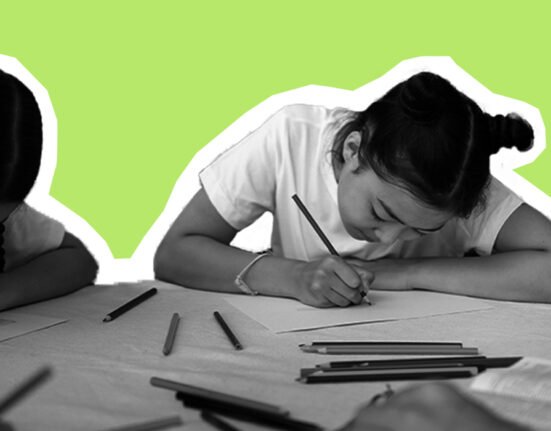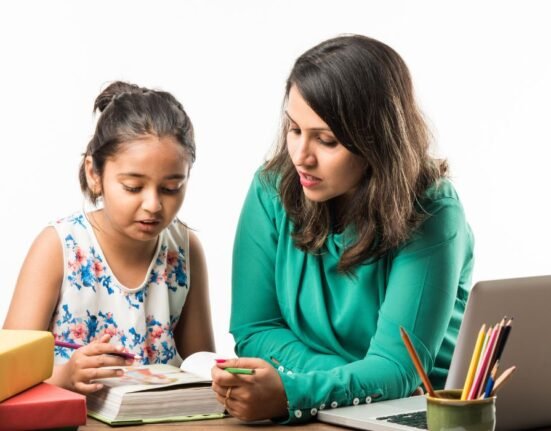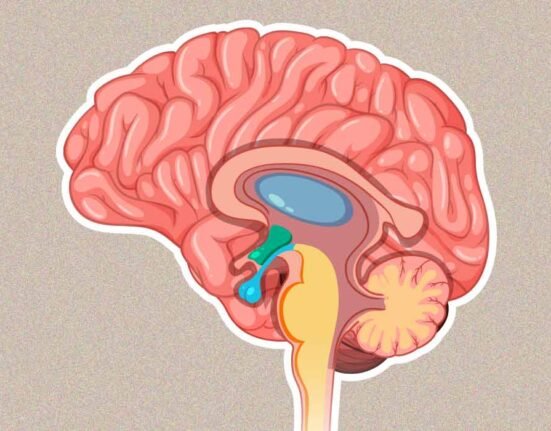Education In Childhood: As we all know and heard parents are the first teachers for students. Education begins at home when a child opens their eyes and begins to observe the world around them. When a mother interacts with her child, for example, by employing a variety of colors and sounds, the baby’s cognitive abilities and reactions are developed. Having open conversations with kids and giving them a sense of being heard and understood is another way to educate them. Early exposure to parental instruction and care helps children’s brains build their social and emotional lobes. Later in adulthood, it helps them achieve success in their careers and mental stability. A child who is appropriately stimulated and interested is more likely to perform and succeed in their profession.
Hence, they strongly and directly influence children even in their education years. For this reason, their involvement in the children’s education will serve only benefit the children and the education system. A parent’s positive attitude towards the child’s education will inspire and empower the child to develop good learning habits. While a negative or ignorant attitude might just discourage and disinterest the child from education.
Importance Of Parental Involvement:
The term “parental involvement” describes how parents support their kids’ education both at home and at school. This might take many different forms, like offering homework assistance, being present at school functions and parent-teacher conferences, taking part in decision-making processes, or keeping in regular contact with the child’s teacher. Now let us see how parental involvement helps children’s education.
Reduced Absenteeism:
Absenteeism refers to frequent missing classes at the school. When children are disinterested in school, they make different stories and excuses to miss a class. High rates of absences are bad for children as they affect the development of social skills of children, academic performance and also, lead to more cases of dropouts.

A longitudinal study conducted on dropouts and absenteeism explains this point effectively. But when there is parental involvement there is a decreased number of absences. According to a research study conducted to correlate absences and parental involvement in middle school students from a public school, it was found that it negatively correlated. That means an increase in parental involvement decreased the number of absentees.
Improves Behaviour:
Parental guidance or involvement plays a role in improving the social skills of children. Parents help their children develop critical social skills that are essential for success in school and beyond by modeling proper behavior, attitudes, and ethics. Parental support in education this parental support results in:
- An increase in the student’s sense of worth.
- An improvement in how they feel about school.
- Reduced non-compliance
- The child’s capacity to establish and preserve positive relationships with instructors and peers
- Decreased instances of unsuitable classroom conduct, like harassment and altercations.
Studies have also shown that parents who aren’t involved or parents who don’t agree with the teachers can hurt the child. The child may also develop negative feelings towards the teachers.
Increase In Student Achievement:
From the very beginning of childhood, parents play an important role in developing a child’s intellectual curiosity through play, communication, and exposure to different experiences. Parents’ involvement in education has been consistently shown to have a positive impact on students’ academic performance, attitudes toward school, and cognitive ability. Research was conducted to investigate the relationship between parental involvement and students’ grades. it included three types of involvement- high, medium, and low. The findings indicate that children from high- and medium-involved families achieve better academically than those from low-involved families.
Improves Parent-Teacher Relationship
Besides the benefits to the children’s academic and social performance, parental guidance in education can improve the parent-teacher relationship. It creates a respectful, positive relationship between the two parties. Together, they can support students’ performance and learning. It benefits the teachers in a way that parents understand the difficulties and challenges teachers face in teaching the children and hence increases their job satisfaction. Also, the interaction between parent and teacher helps the teacher to know the child better fostering a personalized teaching environment. Parental, teacher, and school administration communication improves and hence, when teachers ask for assistance with homework completion, parents are more likely to comply.

For the parents, it benefits them to know their child’s emotional and intellectual capacities and needs better. Parents now feel more comfortable voicing any concerns they may have regarding the school’s policies thanks to the improved communication. The parents’ dedication to the school grows. They might participate more actively in the school’s policy-making process and other crucial procedures.
Parental Guidance And Lifelong Learning:
When it comes to helping kids make critical educational decisions and reach significant milestones like choosing a subject, planning a career, and pursuing higher education, parental guidance is invaluable. Parents can offer children invaluable guidance and mentorship by utilizing their knowledge, experiences, and insights to help them make well-informed decisions regarding their educational and career paths. Through the promotion of transparent communication and cooperation among parents, kids, and teachers, families can jointly establish nurturing settings that support both intellectual and personal development.
Parental guidance is critical to education because it shapes children’s learning outcomes in the areas of cognition, socialization, emotional development, and lifetime learning. Parents provide the framework for both personal growth and academic achievement through their nurturing presence. Parents who actively participate in their children’s education enable them to realize their full potential, overcome obstacles with fortitude, and develop into lifelong learners who make valuable contributions to society. Also, with their involvement in the education of their child, they become more aware of their child’s emotional and intellectual needs and concerns. Hence, instead of just badgering the child to get good grades they can actually support them to achieve their full capacity. Therefore, developing solid relationships between families and educational institutions is crucial to establishing settings in which kids can flourish intellectually, socially, and emotionally.
Refernces+
- https://www.researchgate.net/publication/254350467_Longitudinal_Attendance_Patterns_Developing_High_School_Dropouts
- https://www.researchgate.net/publication/349915844_Absenteeism_and_Parental_Involvement_in_Home_and_School_among_Middle_School_Students_of_Public_School_in_Northern_Mindanao_Philippines_Basis_for_Intervention
- https://cambridgeschoolonline.com/the-importance-of-parental-support-and-guidance-for-good-academic-growth/
- hrome-extension://efaidnbmnnnibpcajpcglclefindmkaj/https://files.eric.ed.gov/fulltext/EJ11\













Leave feedback about this